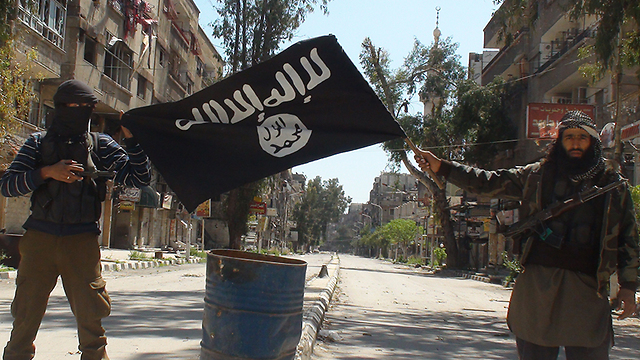The new Mideast: Will militias replace the state?
Mohamed Chebarro/Al Arabiya
Tuesday, 2 June 2015
Increasingly, one can note a trend in Middle Eastern states of ISIS, secessionist forces or sectarian militia gradually eroding the power of the state, or in some cases replacing it. This trend is easily detected in Iraq, Lebanon, Syria, Yemen, and Libya today (could it be Egypt’s turn next?) and the recent case of Ramadi’s fall in Iraq illustrates the trend. The Baghdad government’s plan for a swift assault on ISIS-held Ramadi is “laughable,” noted Hadi Al-Ameri, Leader of the Poplar Mobilization units
In an interview with the Telegraph, Ameri blamed Prime Minister Haider al-Abadi and the Americans for the fall of Ramadi. In the interview, he alluded that only the Popular Mobilization Units – which are seen in the Arab world and by the international community as a sectarian dividing force – would be capable of liberating Ramadi from ISIS, and maybe he is right. Syria, Iraq, Lebanon and Libya – in all the state is fading and militias are winning ground
Ameri went on to say:
“It’s a lesson to them, that they should learn they cannot save Ramadi, and the Americans cannot save Ramadi. Now they know that there is no force that can save Ramadi except for the Hashed or the Popular Mobilization Units.” In the absence of a strong central government and the many calls for decentralization, we see constantly that the militias – or Popular Mobilization units which enjoy Iranian support – operate more effectively and are slowly winning ground as well as the hearts and minds in Iraq.
Suspicious moves
One cannot but suspect a conspiracy as Iraqi Kurds and the Shiite militias, as well as ISIS, seem to be getting ahead while the armed forces of Iraq and the tribal militias are suffering one set back after another. In Syria, this seems to be the trend too; the state has long ceded ground and authority to Iranian backed and trained militias. Also, the Lebanese Hezbollah never shy away from keeping afloat a further weakened Assad regime. This comes in light of ISIS’s increased gains on the ground, both at the expense of the regime forces and the moderate Syrian opposition to Assad regime.
Neither the forces of the state nor the emerging moderate forces searching for a new Syria are managing to confront ISIS and the new status quo.
Spreading trend. Nowhere is this new trend clearer than in Lebanon itself, where Hezbollah has gradually eaten away at the state apparatus since the mid-nineties. It initially did so in duplicitous way, sharing with the state pointers on how to face up to Israel and liberating Lebanese land.
Syria, Iraq, Lebanon, Libya and soon maybe Yemen; the state is fading and the militias are winning ground. Many talk about the need to reexamine the map of states in the Middle East 100 years after Sykes-Picot carved the land into states under the sphere of British and French influence. And it seems that in the foreseeable future the nation states of the post-colonial Middle East once again face challenges that could undermine certain states’ unity, identity and territorial integrity. Many consider the emergence of ISIS and its ability to blur the border between Iraq and Syria a precursor that will speed up the fragmentation process of the states.
The U.S. under Obama, intentionally or unintentionally, is sleep walking into supporting this fragmentation and maybe paving the way for re-drawing the map of the region. Leaning on a possible deal with a nuclear Iran, policy makers in Washington are flirting with a new status quo. Sunni Arab Islam is anti-progress, whereas once oppressive yet rehabilitated Iran’s Shiite Islam is progressive and could in the near future spread the torch of democracy in the region.




















